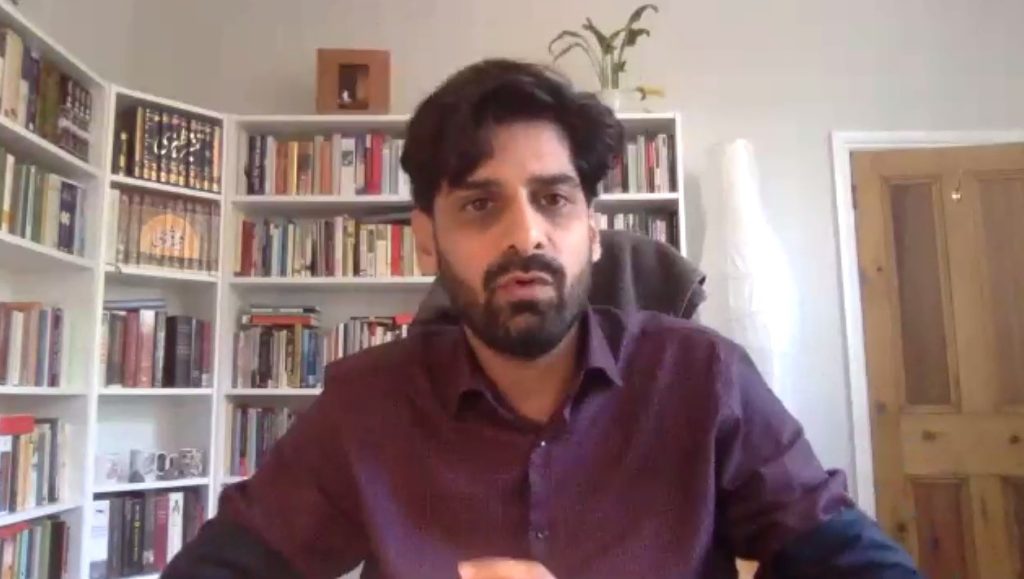Musab Iqbal speaks on decentring media studies for the Centre for Studies of Plural Societies

The CSPS Internship comprises a series of virtual lectures, fifth session of which was hosted Dr Musab Iqbal who gave a talk to CSPS interns about Rethinking and Decentring Media Studies on 11th of September 2021. The session included an introductory lecture following an interactive question and answer session between Dr Musab Iqbal and the interns of CSPS.
Musab Iqbal started his session by highlighting the importance of rethinking the boundary and the knowledge produced by the media. According to Dr. Iqbal, the discipline of media studies developed from the pathologies of modernity including immigration to the United States in the 19th and 20th centuries, development of fascism and Nazism in Germany and Italy. These pathologies enable us to define what media is and in what context we perceive the role of media in society. Dr Iqbal stated that the salaried classes included technocrats and professional class who earned well and had the time to consume fascist propaganda and enhance it according to their necessity.
Coming next to McLuhan’s theory of Medium is the Message, Dr. Iqbal talked about how the theory revolutionised media studies where the message in itself doesn’t mean anything and the medium becomes the message. Focusing on countries like Italy and Germany where the films, tv, leaflets, and posters set the model for stereotyping and othering of an individual from the society which is duplicated in today’s Europe for the othering of Muslim immigrants through caricaturing and other forms of racism.
Moving from the genesis of media studies, Dr Iqbal talked about the work of Paddy Scannell, who looked into the role of Television in the 1970s where he applied the phenomenological method and the works of German philosopher Heidegger in developing the theory of critique hermeneutics of suspicion. The author critiques it by referring to the hermeneutics of suspicion in direct relation to the hermeneutics of trust. According to him, in the usage of Television, the modern man shares the hermetic of trust in which he trusts and develops his view of the world from the source and the medium on which he has little direct control.
Further talking on the works of Freidrich Kittler and John Durham Peters The Marvelous Clouds: Toward a Philosophy of Elemental Media, Dr. Iqbal cautioned interns on equating media with the medium. According to Kittler, there is a big ontological shift that defines the conditions of life itself.
The second part of the talk involved rethinking media studies as a form of discipline. According to Dr Iqbal, after the Arab spring, the discipline itself was boggled up in superficial optimism with regards to new technologies. The over-reliance on technology shows that as a discipline, media studies has not been able to localise itself, understanding power relations and their impact on shaping identities. Thus the department of media studies is becoming a department of digital studies. It is no longer able to provide a critical and theoretical understanding of the subject.
Dr Iqbal briefly touched on the issue of Decentring and de-westernising media studies which involves not looking at it from material mediums like newspapers and Television etc but seeing it everywhere as a necessary condition of our ontological being. A problem with decolonising knowledge is to de-universalise it. Decentring and de westernization must not be seen as the same thing. De-westernising emerged from the influence of post-colonial authors like Edward Saeed who critiqued modernity but not without challenges. Tariq Sabri research on Arab thought and modernity in the context of media studies cautioned that it might lead to essentialism and reverse orientalism.
Before ending the session, Dr Iqbal took questions from the interns who showed great interest in the topic and asked timely and well-placed questions in accordance with the topic under discussion.
Image: Musab Iqbal





